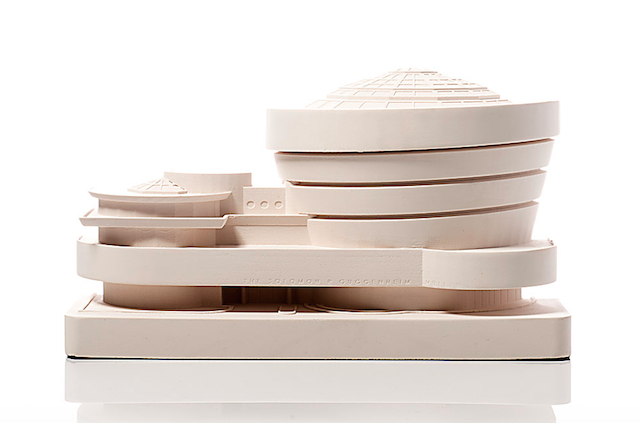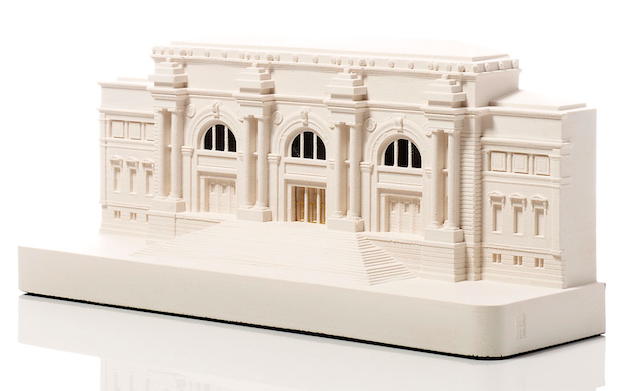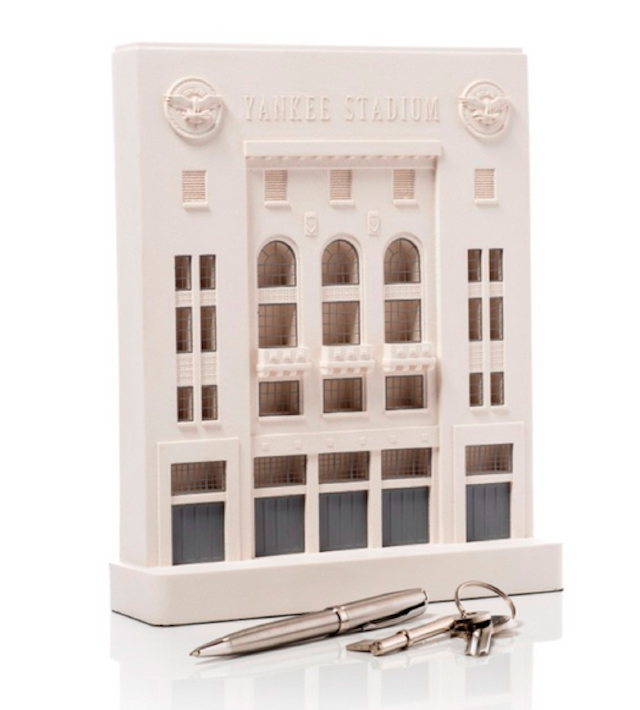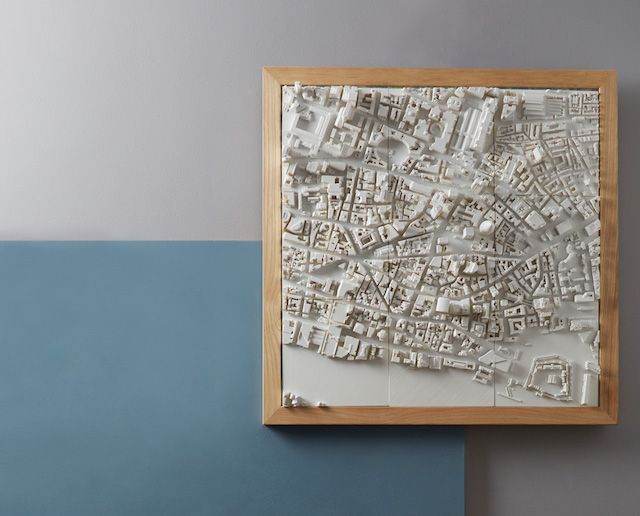Vintage 1970s Photos Show Lost Sites of NYC's Lower East Side
A quest to find his grandmother's birthplace led Richard Marc Sakols on a mission to capture his changing neighborhood on film.


Hopefully some millennials out there still remember those rainy grade school afternoons spent building pillow forts and Lego sets. There was a simple joy in putting things together and playing make-believe. Thankfully, one can never be too old to make castles in the sand. Or plaster.
Robert and Gavin Paisley were once software developers. Now, the British-based duo run a company that designs plaster architectural models. The brothers call it Chisel & Mouse in reference to their mixing of traditional methods with 3-D printing and computer aided design (CAD) technology.
While they’ve started with capturing London and its various landmark buildings, the Paisley brothers have expanded to New York City too. Plaster models of various Manhattan buildings are currently for sale on their website for around $215 each, ranging anywhere from 5 inches to a foot in height. Standouts include Frank Lloyd Wright’s design of the Solomon R. Guggenheim Museum on the Upper East Side and the front facade of the New York Daily News headquarters on East 42nd Street, as well as models of the Flatiron Building, The Metropolitan Museum of Art, and the old Yankees stadium.

The Guggenheim Museum. Image via chiselandmouse.com
 The Metropolitan Museum of Art. Image via chiselandmouse.com
The Metropolitan Museum of Art. Image via chiselandmouse.com

The Old Yankee Stadium. Image via chiselandmouse.com
With an ever growing client base, the Paisley brothers also offer custom-made models of family homes, buildings, and full plaster-cast models of cities. London remains the only full-city model to be readily available, but hope remains for Manhattan, which enjoys the most demand after it.
Perhaps the most surprising thing about the Paisley brothers is not that they don’t even need to visit most of the buildings they design, relying instead on Google Earth and blueprints to render computerized drafts of their models, but rather that they don’t even consider their work art. As Robert Paisley told Vanity Fair of their method, “We wouldn’t presume to think of ourselves as artists. We call ourselves draftsmen; the architect is the artist.”
Indeed, significant attention is paid in each model to the building’s style, to the Guggenheim’s Modernism compared with the Art Deco splendor of the Daily News Building. Just as well, the delicate plaster adds an element of abstraction to the buildings in a way that isolates the artistry of their design.

Image via chiselandmouse.com
Chisel & Mouse, with features in Architectural Digest, Dwell, and sold on websites such as Wolf and Badger and The Lollipop Shoppe, is a success, yet the Paisley’s characterization of their business hearkens back to something much simpler, an innocent joy of building a world, whether next to the toy chest on a rainy day or a plaster studio in East Sussex, England.
As Gavin Paisley said, “We were desperate to make something with our hands.” So they did. The only difference is that they don’t have to clean up in time for dinner.
Next, read about 10 Outrageous Architectural Plans that Never Left the Drawing Board. Get in touch with the author at @jinwoochong
Subscribe to our newsletter